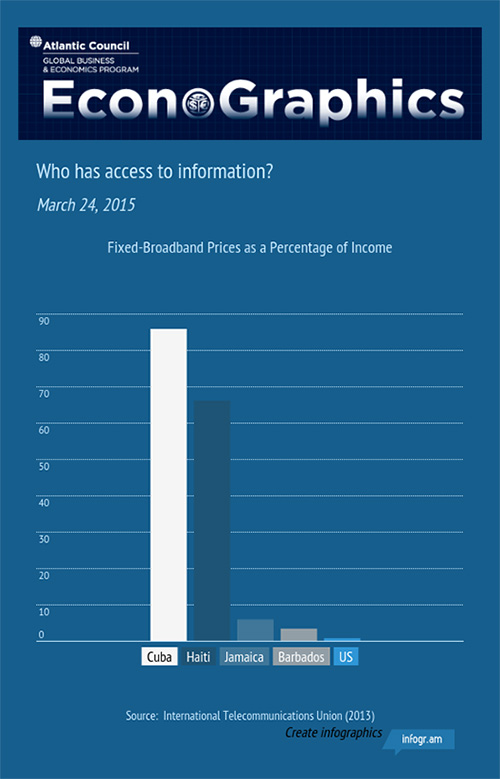When President Obama announced his landmark policy shift towards Cuba, easing the 54-year-old embargo, one of the first companies to announce they would begin operating in Cuba was Netflix. The online video company’s decision was surprising, if only because Cuba’s internet is one of the slowest in the world.

The cost for Cubans to access telecommunications like the internet or mobile phones is prohibitively high: paying for fixed broadband would take more than 85.79% of an average Cuban’s salary, or $21.5, a sky-high rate compared even with its neighboring islands in the region.
The two internet service providers on the island are both state-owned enterprises, as is the only mobile phone carrier. But by allowing outside telecommunications firms to enter into roaming agreements with Cuban providers and to establish fiber-optic cable and satellite telecommunications facilities there is a strong potential to accelerate the growth of telecommunications—and with it, access to information—in Cuba.